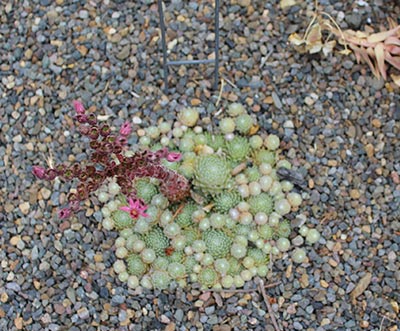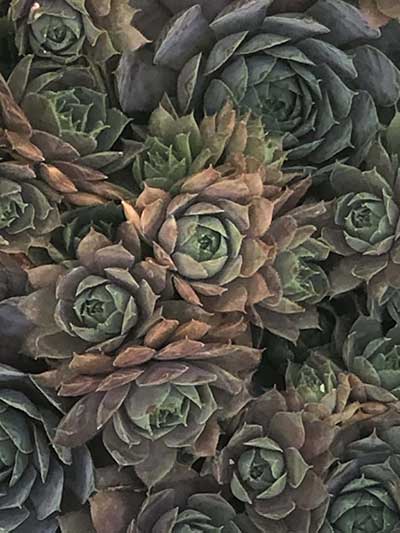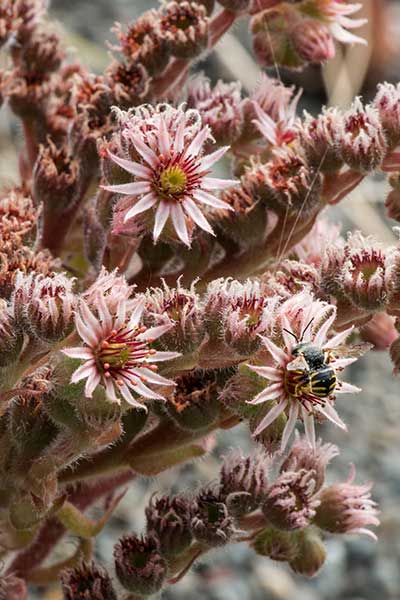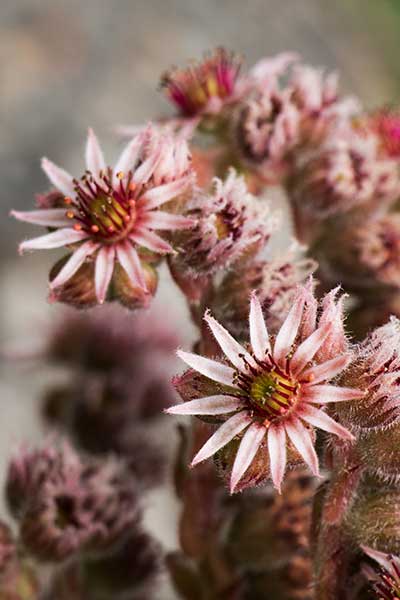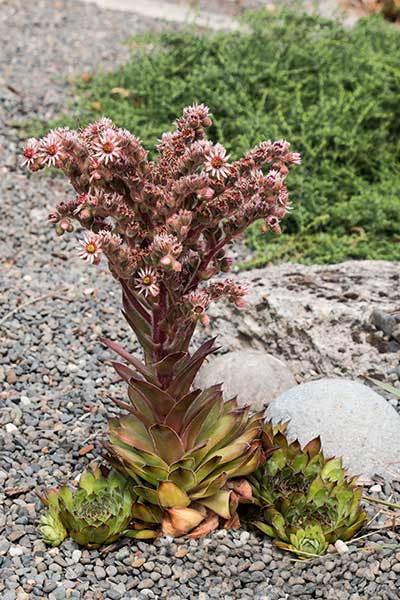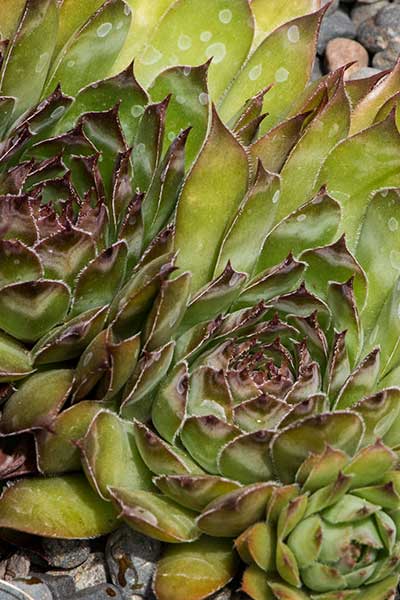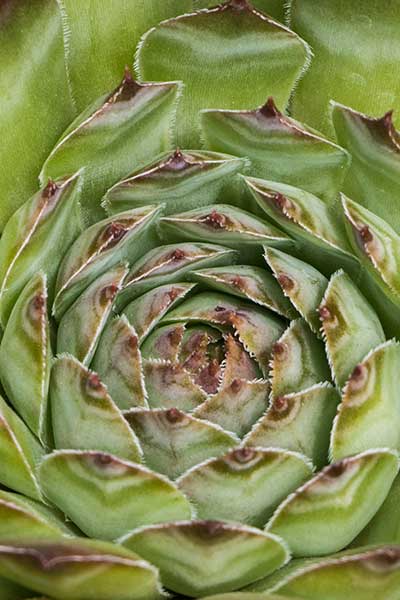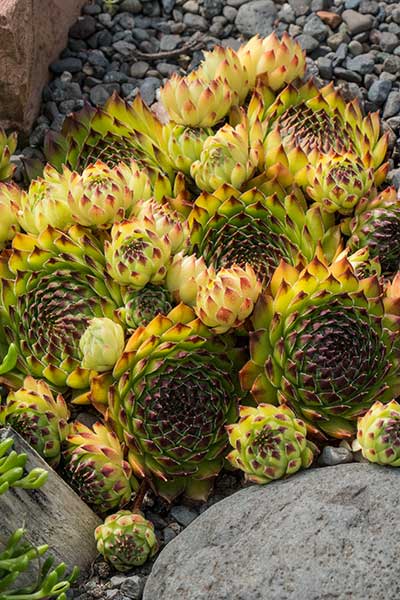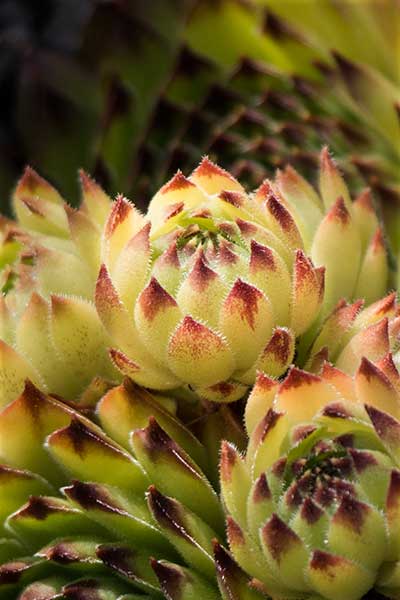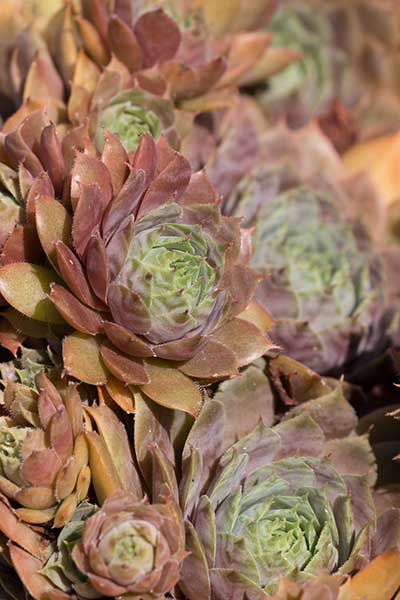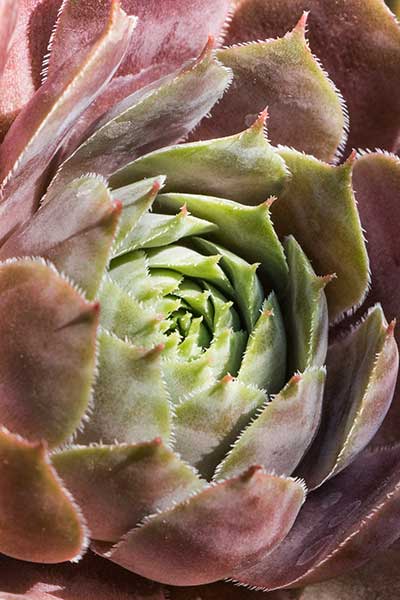Hen & Chicks
- Scientific Name: Sempervivum
- Garden: Xeriscaping Garden
- Plant Type: Ground Cover
- Evergreen/Deciduous: Evergreen
- Sun/Shade Exposure: Full Sun or Part Shade
- Moisture Requirements: Moist, Well-Drained
Plant Information
Culture: As long as the drainage is good, Sempervivum are happy in average to poor soil, in full sun to part-shade locations. A rocky corner of your yard that gets very hot in summer is a good place for these plants. They also do well in parking strips, amongst the roots of trees. If there are concerns about drainage in the planting location, simply incorporate pumice and organic matter to create the necessary air pockets in the soil. Mulching with lava rock encourages water to drain away from the crown of the plant. Maintenance: Sempervivum are almost carefree. If a rosette blooms and dies, dig out the dead plant and wait for the surrounding rosettes to fill in the hole. Although these plants are extremely drought tolerant, they will need consistent watering to get them established the first season after they are planted. Pest and Disease: The most common problem of Hens and Chicks is overwatering. Make sure that their soil dries out before the next watering. If leaves become translucent and discolored (a common sign of overwatering) dig up affected rosettes and let dry out before planting again. It is possible for Sempervivum to sunburn. If there is a lot of radiant heat and intense sun exposure, mixed plantings can create shade pockets, and, therefore, prevent sunburn in parking-strip-like situations. Other pests that can bother Hens and Chicks include aphids and mealybugs, deer, rabbits, dogs and cats, moles and voles, slugs, and birds. Aphids and mealybugs may attack plants that are stressed, either from insufficient light or overwatering. A strong jet of water can dislodge aphids. Neem or insecticidal soap can be used on both aphids and mealybugs. Correcting cultural practices prevents these pests from feasting on your plants in the future.
Data Source
https://www.portlandnursery.comPlant Photos













